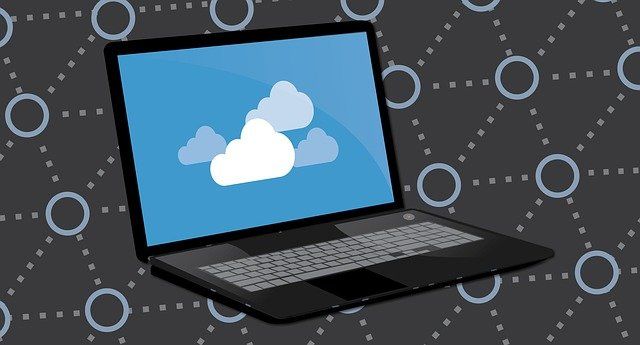Multi-Cloud Security Approach

Multi-cloud environments are common in business whether your organization deploys fully on the cloud or you still retain some IT infrastructure on-premise in a hybrid setting.
Multi-cloud service involves the use of cloud services from multiple vendors such as Amazon web service, Microsoft Azure, Google Cloud, and private cloud environment. It also includes the use of specialized platform-as-a-service and software-as-a-service from various providers.
With the widespread deployment of multi-cloud systems comes new cybersecurity risks. The interplay between cloud infrastructure from multiple providers may create security issues that IT admins are not prepared for.
Benefits of Multi-Cloud Systems
1. Better Choice
Multi-cloud deployment gives organizations and developers the freedom to choose components and services from multiple cloud vendors that are best suited to their goals.
It helps organizations maximize efficiency by allowing them to take advantage of various cloud offerings.
2. Cost Savings
Multi-cloud systems also allow organizations to enjoy competitive pricing from different cloud vendors trying to gain new customers. A cloud provider’s offering can be tried without dismantling existing systems.
3. Prevent Downtime and Disruption
With the adoption of multi-cloud deployment, you cannot rule out the possibility of disruptions. Cyber-attacks or user misconfigurations may knock out or severely limit the operations of a particular cloud provider for hours or days. This can lead to business disruptions and loss in revenue.
A multi-cloud deployment will ensure that your business has the right infrastructure to stay online because it can rely on other providers for backup in case of disruptions caused by attacks, emergencies, and disasters.
How to Improve Multi-Cloud Security
1. Familiarize with Multi-Cloud Environment
Cybersecurity becomes tricky if the multi-cloud environment your business infrastructure is based on is not properly understood. IT managers and administrators should be familiar with all the cloud services used by an organization to gauge the strengths and weaknesses and create effective security controls.
2. Adopt a Multi-Cloud Specific Security Strategy
Some IT managers still see multi-cloud security as an extension of on-premise data centers. However, a multi-cloud environment needs its own security strategy because forcing on-premise security tools and processes on multi-cloud systems may cause unexpected cyber incidents.
3. Consolidate Cloud Infrastructure Technology
Juggling among different tools and processes for different cloud-based environments can be quite challenging for organizations. This process can also lead to costly mistakes that can slow down the adoption of new technology and trigger security incidents. Identifying and categorizing the tools that are available for managing various cloud environments in your organization will help to improve security.
4. Improve Authorization Workflow
Organizations with multi-cloud security deployment need a framework that supports the various cloud technologies in use. Managing users, administrators, and auditors of a system can be very complex in a multi-cloud environment.
Different cloud frameworks authentication workflow may not work directly with competitors or scale along easily. External cloud frameworks for managing multi-cloud systems may be needed for each unique organization’s need.
Different application components can be harnessed together through better workflow to improve the security of a business’ multi-cloud environment.
5. Implement Applications Hardening
Regular audit of a multi-cloud system is essential for security. It enables IT managers to discover and fix vulnerabilities before bad actors can exploit them.
Since multi-cloud applications need to communicate with one another, security risks may be heightened because of exposed communication APIs that may be exploited by cybercriminals.
Auditing exposed remote control systems and API and limiting access to them will help mitigate cyber attacks.
6. Improve Data Processing Confidentiality
Security best practices are applied to data storage and transfer between cloud providers. However, not enough attention is paid on stored data being processed.
For sensitive data, this might pose a problem among multi-cloud systems since there are no mandatory data processing policies providers are required to follow. It is up to your organization to access and develop an effective policy for handling data processing.
7. Continuous System Monitoring
Many cloud providers have inbuilt cloud monitoring systems that are not cross-platform. For a multi-cloud environment, such systems are inadequate. You must be fully aware of the state of all your IT infrastructure in the cloud for better security.
Monitoring tools that can integrate with all your business cloud providers, as well as on-premise infrastructure, are needed. Effective monitoring ensures that you have a current view of your organization’s data so that attacks could be quickly detected and blocked.
*****
While general cloud platforms have cybersecurity risks, multi-cloud systems have different sets of security issues that must be uniquely addressed to protect an organization’s infrastructure from being compromised. Following the recommendations in this article will help improve your business resilience against attacks. For additional questions, please contact SDTEK today.
The post Multi-Cloud Security Approach appeared first on SDTEK | San Diego, CA.


